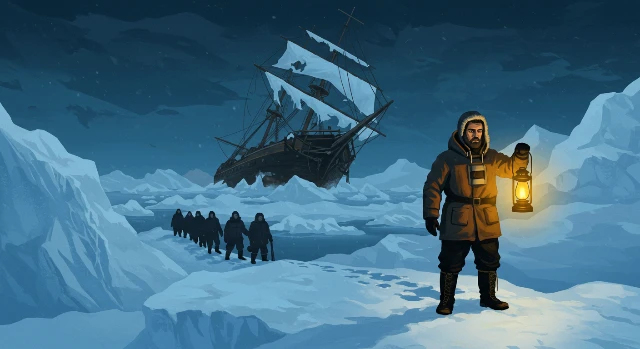
Ernest Shackleton’s Failure and Success: How Should Leadership Be Measured?
Ernest Shackleton (1874–1922) was a British Antarctic explorer who led the 1914 Endurance expedition. When the ship was trapped in ice and eventually sank, the mission to cross the Antarctic continent ended in failure. Yet, through nearly two years of hardship, Shackleton’s cool judgment and strong sense of responsibility brought every crew member home alive. This episode raises fundamental questions about how leadership should be evaluated. Although he failed to achieve his original goal, Shackleton is remembered as a symbol of great leadership. Should leadership be judged by the achievement of objectives, or by the ability to protect and guide people in crisis? Leadership Is the Ability to Save People Shackleton’s expedition failed in its objective, but his leadership shone through that failure. Guiding his men to survival under extreme conditions was itself a remarkable success. In organizations too, leadership is not just about outcomes but about responsibility, crisis management, and protecting people—the true essence of leading. Leadership Must Be Measured by Results Leadership is ultimately about achieving goals. Shackleton never accomplished the Antarctic crossing, and historically the expedition is seen as a failure. Even if his crisis management was admirable, calling him a “successful leader” may exaggerate his legacy, since leadership should also be judged by the completion of intended objectives.
flo-mfw
Views 189 •